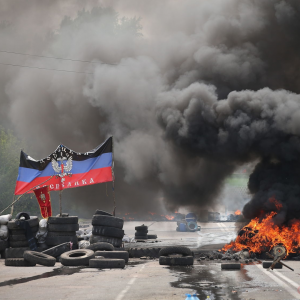The pandemic struck at the Eurasian Economic Union (EAEU), testing it for strength. Russia closed its borders, Kazakhstan and Armenia imposed a state of emergency, and Belarus and Kyrgyzstan are in isolation. Communication between the countries that are members of the EAEU is virtually discontinued. At the suggestion of Kyrgyzstan, a working group will be formed to take operational measures and exchange information in order to ensure macroeconomic stability, mutual trade in goods and freedom of movement of labor in the EAEU in the context of the spread of coronavirus.
Advisor to the Prime Minister of Kyrgyzstan, Kubat Rakhimov, agrees that the situation is alarming. «As the experience of the EU has shown, all integration associations are at risk of relative disintegration in a few days, when borders are closed, the movement of people and goods is limited. At least three sectors are automatically affected: transport, tourism and the labor market. The restrictions that Moscow and Nur Sultan have now imposed will hit workers from Kyrgyzstan».
Stanislav Pritchin, head of the analytical group at the Center for the Study of Central Asia and the Caucasus at the Institute of Oriental Studies of the Russian Academy of Sciences, says that all countries suffer economic damage and border closure is a necessary and justified measure. «When the epidemic subsides, all ties between the countries — economic, humanitarian — will be restored. Therefore, I see no reason to believe that integration has died and all projects have ended». In his opinion, at the moment it is necessary to quickly resolve the issue of migrants who had to return to their homeland. Among them are many stuck on the borders between countries.
The currency, financial and economic crises associated with the collapse in oil prices, running in parallel with the spread of the epidemic, are a test of the EAEU’s stability. Together with the limitation of communications, this becomes a strong test for all economies participating in the EAEU, and in this regard, for the political preferences of the national elites of the participating countries. The latter is critically important, since overcoming all the negative consequences for Eurasian integration can be ensured only by colossal political will, the probability of manifestation of which by all the EAEU members can hardly be considered a priori mandatory and unconditional.
Coronavirus in EAEU — consequences and ways out of their crisis
The pandemic struck at the Eurasian Economic Union (EAEU), testing it for strength. Russia closed its borders, Kazakhstan and Armenia imposed a state of emergency, and Belarus and Kyrgyzstan are in isolation. Communication between the countries that are members of the EAEU is virtually discontinued. At the suggestion of Kyrgyzstan, a working group will be formed to take operational measures and exchange information in order to ensure macroeconomic stability, mutual trade in goods and freedom of movement of labor in the EAEU in the context of the spread of coronavirus.
Advisor to the Prime Minister of Kyrgyzstan, Kubat Rakhimov, agrees that the situation is alarming. «As the experience of the EU has shown, all integration associations are at risk of relative disintegration in a few days, when borders are closed, the movement of people and goods is limited. At least three sectors are automatically affected: transport, tourism and the labor market. The restrictions that Moscow and Nur Sultan have now imposed will hit workers from Kyrgyzstan».
Stanislav Pritchin, head of the analytical group at the Center for the Study of Central Asia and the Caucasus at the Institute of Oriental Studies of the Russian Academy of Sciences, says that all countries suffer economic damage and border closure is a necessary and justified measure. «When the epidemic subsides, all ties between the countries — economic, humanitarian — will be restored. Therefore, I see no reason to believe that integration has died and all projects have ended». In his opinion, at the moment it is necessary to quickly resolve the issue of migrants who had to return to their homeland. Among them are many stuck on the borders between countries.
The currency, financial and economic crises associated with the collapse in oil prices, running in parallel with the spread of the epidemic, are a test of the EAEU’s stability. Together with the limitation of communications, this becomes a strong test for all economies participating in the EAEU, and in this regard, for the political preferences of the national elites of the participating countries. The latter is critically important, since overcoming all the negative consequences for Eurasian integration can be ensured only by colossal political will, the probability of manifestation of which by all the EAEU members can hardly be considered a priori mandatory and unconditional.




